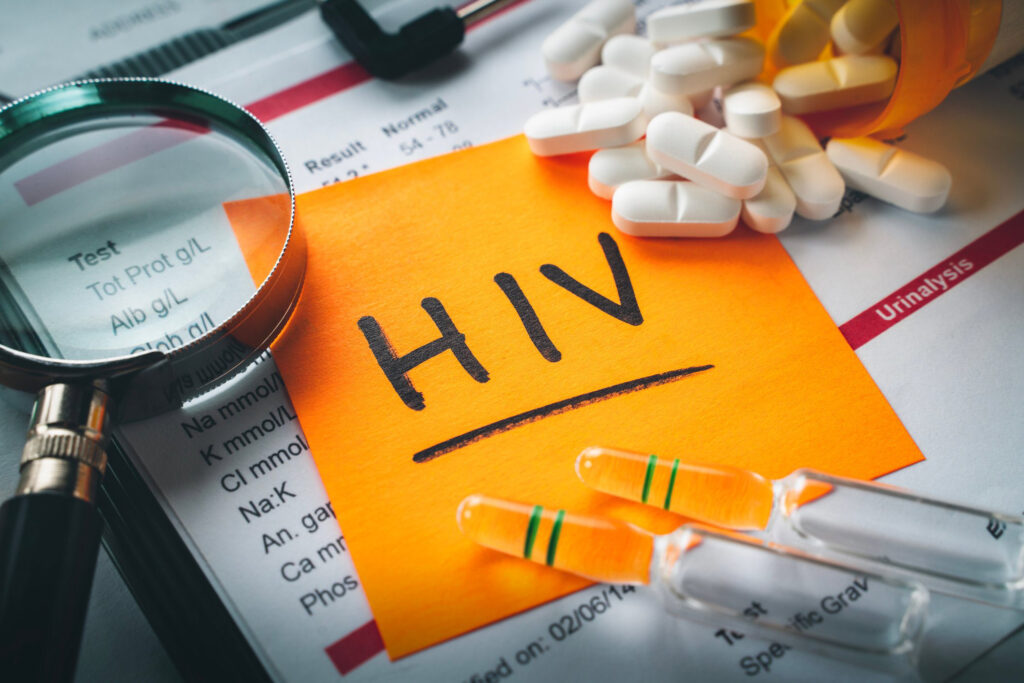As men reach their 30s, their bodies begin to experience changes in lifestyle habits, stress patterns, sleep cycles, and dietary choices that were previously easy to ignore. They experience fatigue, lack of concentration, digestive problems, back pain, headaches, and weight fluctuations. These changes often appear slowly, so many men treat them as normal parts of life.
As responsibilities increase, so does pressure. Many men work toward long-term goals such as career advancement, financial stability, and owning a home or a car. They try to meet rising expectations at work while juggling personal commitments, putting constant strain on the mind and body.
These changes often leave little room for adequate rest or regular health routines. Over time, the body adapts, but the stress becomes apparent. This is why preventative health checkups are essential during this period. These tests help men understand the real reasons behind these changes and provide clear guidance before the symptoms become difficult to control.
Essential Health Checkups for Men 30+
1. Complete Blood Count and Basic Blood Panels
A Complete Blood Count is a simple blood test that offers a clear picture of your overall health. It checks red blood cells, white blood cells, platelets, and other essential markers. Doctors often include thyroid levels, blood sugar levels, and key nutrients when you go for a preventive check-up.
A CBC helps detect:
-
-
- Early infections
- Anemia
- Immunity-related concerns
- Fatigue-related issues
- Immunity-related concerns
- Anemia
- Early infections
-
Basic blood panels help you understand how your body functions internally. They reveal small changes that often go unnoticed in daily life.
High blood pressure becomes more common after 30 due to long sitting hours, high sodium diets, lack of exercise, smoking, and work-related stress. The challenge is that high blood pressure can remain undetected for years. You may feel completely fine and still have a reading that puts pressure on your heart, kidneys, and blood vessels.
A regular health check-up helps you track your numbers. Consistent readings above normal indicate your body’s response to lifestyle stress. When you know your blood pressure early, you can adjust your diet, sleep schedule, and activity levels before the condition harms your organs.
Men should check their blood pressure at least twice a year after turning 30. Those with stressful jobs or a family history should check even more often.
3. Blood Sugar Test
Diabetes is one of the most common lifestyle conditions today. Long working hours, high sugar intake, low physical activity, and stress make it easier for blood sugar levels to rise. The body does not show early signs in many cases. This is why a blood sugar test becomes essential after 30.
A fasting blood sugar or HbA1c test helps you understand:
-
-
- How your body processes sugar
- Whether you are at risk of prediabetes
- How lifestyle choices affect your metabolism
- Whether you are at risk of prediabetes
- How your body processes sugar
-
Prediabetes is reversible when detected early. A simple test guides you toward healthier routines that protect you from long-term complications such as nerve damage, kidney issues, eye problems, and heart disease.
You can book an appointment with your doctor or visit a trusted medical care centre to compare your readings regularly and build a preventive plan based on your age, routine, and long-term health goals.
4. Cholesterol and Heart Health Tests
Heart health begins to change silently after 30, especially when stress, irregular meals, and long sitting hours become part of daily life. A lipid profile test helps you understand how your cholesterol levels support or strain your heart. It measures LDL, HDL, triglycerides, and total cholesterol. These readings show whether your arteries stay clear enough for smooth blood flow.
When LDL rises, it places pressure on your heart and increases your long-term risk of heart disease. A preventive check-up gives you early signals so you can adjust your diet, activity levels, and stress habits before complications grow. If you have a family history of heart conditions, your doctor may recommend additional heart screening to better understand your cardiovascular health.
5. Liver and Kidney Function Tests
Your liver and kidneys work every day to filter toxins, support digestion, balance minerals, and maintain overall metabolism. When you cross 30, these organs show early signs of strain in ways you may not notice on the outside.
Liver and kidney tests help detect:
-
- Early signs of organ strain
- Effects of high salt or high protein diets
- Dehydration-related changes
- Inflammation or enzyme imbalance
- Dehydration-related changes
- Effects of high salt or high protein diets
- Early signs of organ strain
These tests allow your doctor to recommend diet changes, hydration improvements, and supplements before your organs face long-term damage. Men over 30 should include these tests regularly to maintain internal balance.
6. Thyroid Function Test
The thyroid controls energy, sleep, weight balance, and mood stability. Many men begin to experience thyroid fluctuations after 30 without realizing it because the symptoms often feel like regular fatigue or stress. A thyroid function test checks your TSH, T3, and T4 levels to see whether your metabolism stays stable. When these levels shift, you may notice unexplained weight gain, low concentration, irritability, or sleep disturbances. Early testing helps you understand the cause of these changes, rather than guessing or adjusting your routine blindly. A preventive check-up provides clarity and helps your doctor guide you toward treatment or lifestyle changes that support long-term wellness.
7. Vitamin D and Vitamin B12 Tests
Vitamin D and Vitamin B12 play a larger role in men’s health after 30 than most people realise. Vitamin D supports bone strength, posture, muscle contraction, immunity, and overall energy. Vitamin B12 supports nerve health, memory, focus, and red blood cell formation. When the levels of these vitamins drop, the body responds in ways that can feel confusing, such as unexplained fatigue, dullness of mind, poor concentration, or frequent body discomfort. A simple blood test identifies these deficiencies clearly. Early detection helps you correct your intake through food, sunlight, or supplements. This creates long-term protection for your bones, nerves, and overall vitality.
8. Eye and Dental Examinations
Healthy eyes and strong teeth keep you comfortable, confident, and focused every day. Continuous screen time, close reading, and artificial lighting strain your eyes and slowly reduce visual clarity. Regular eye examinations help you track these changes early. They check how well your eyes adjust to light, distance, and digital exposure, allowing your doctor to suggest simple habits or corrective steps that prevent long-term strain.
Your dental health deserves the same attention. Tiny gum irritations, plaque buildup, or worn enamel can quietly affect digestion and self-confidence. Routine dental visits clean hidden areas, detect early decay, and protect your overall health. Together, eye and dental check-ups strengthen the two features that support how you see, eat, and express yourself every day.
9. Fitness and Lifestyle Screenings
Fitness and lifestyle screenings help you understand how your body performs in everyday situations. This test checks your stamina, muscle balance, posture, flexibility, and breathing pattern. These details show how well your body supports you through long workdays, daily movement, and physical tasks.
When you see clear numbers instead of relying on guesswork, you learn which areas need attention. You may discover that your posture needs correction, your muscle strength needs improvement, or your endurance needs support. This information guides you toward realistic fitness choices that fit your routine, not force you into a strict plan you cannot maintain.
Final Say!
Life becomes demanding in your thirties, and you rarely get time for your health. Work, personal goals, and growing responsibilities take away most of your space. Regular health check-ups highlight areas for improvement and detect the early stages of various chronic conditions before they affect your daily life. These screenings give you a clear picture of your heart, metabolism, immunity, strength, and overall body status. These insights help you build healthier routines and maintain the energy you need to achieve your personal and professional goals. If you want a reliable place to begin your preventive care, you can book your check-up at Local MD Medicare Center in Brooklyn. Our board-certified doctor team offers complete health screenings, clear guidance, and personalized support to help you understand your health with confidence.






